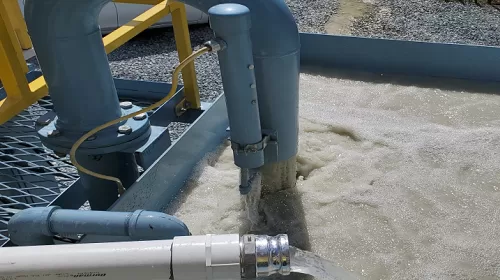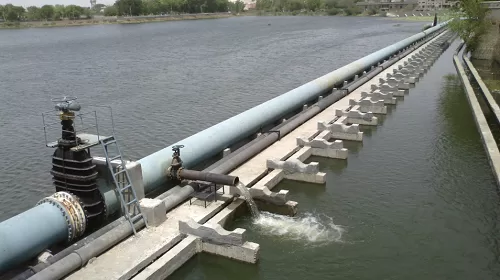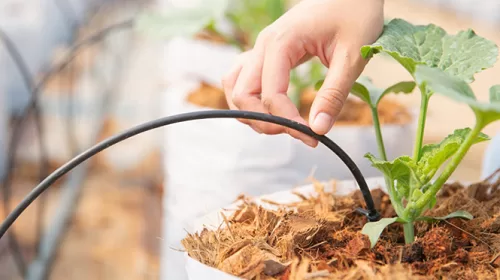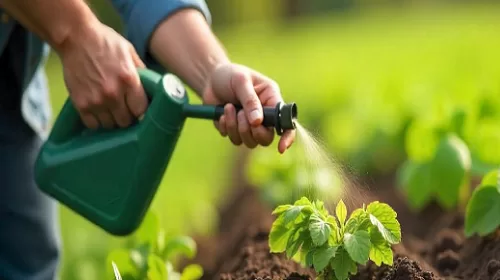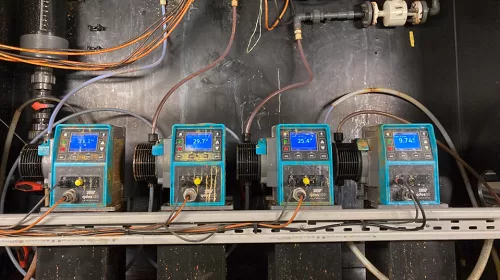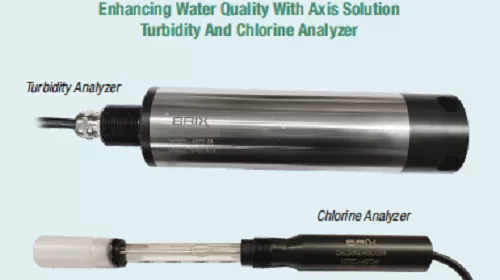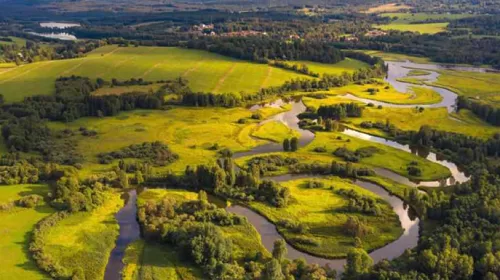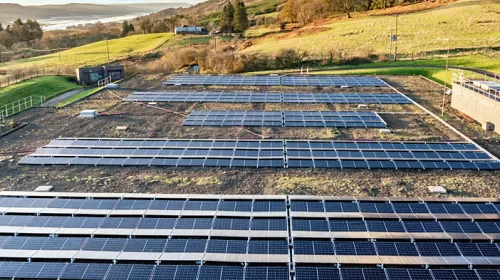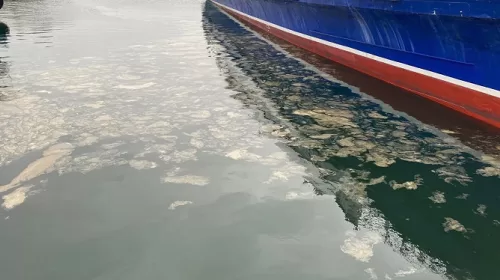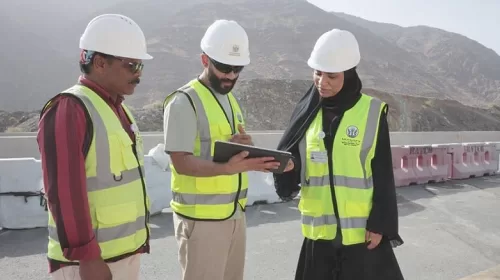By Del Williams, Technical Writer Based in Torrance, California To help comply with EPA wastewater regulations and reclaim valuable resources, chemical polymers are added to industrial clarifiers, settling ponds, and other wastewater equipment at various stages of treatment. These polymers promote flocculation, a process in which small particles clump together into larger particles called flocs, which settle to the bottom. The clarified water can then be discharged for re-use, disposal, or further treatment. The problem with this highly effective and economical method of removing suspended solids from wastewater is that…
Read MoreMonth: March 2025
Addressing Water Scarcity Through River Interlinking
By Subhash Sethi, Chairman, SPML Infra Limited Water is the lifeblood of social and industrial progress, yet India faces a severe and escalating water crisis. Despite having 18% of the world’s population, the country possesses only 4% of global freshwater resources, leading to a significant water imbalance. This challenge is further intensifying due to rapid urbanization, continuous population growth, rising industrial expansion, and climate change events, which impact rainfall patterns and resulting in water scarcity. India is also the largest consumer of groundwater, extracting approximately 230 billion cubic meters annually.…
Read MoreTech’s Role in resolving Water Crisis
By Kanishka Chatterjee, Director & Head, The/Nudge Prize India grew from merely 51 million tons (Mt) of food grain production in 1950/51 to over 314 Mt in 2022- a sixfold increase in production. What led to this remarkable outcome was the shift to science-led agricultural development, planner’s vigour and the dedicated effort of millions of farmers. This transformed India from an acutely food-scarce and food shortage nation to a food surplus and food exporting country. However, these accomplishments came at a price- trading in water security, a resource even more…
Read MoreFrom Solutions to Challenges: How Government Policies fueled India’s Groundwater Crisis and the Path Forward
By Utkarsh Bhargava, Consultant, Avalon Consulting India’s population grew rapidly after independence, putting immense pressure on the country food supply. Agricultural output did not increase at the same pace as population growth. Traditional farming methods were outdated, with minimal use of technology, leading to poor crop yields. Most farming was dependent on rainfall, and infrastructure for irrigation, fertilizers, and pesticides was inadequate. As a result, India faced severe food shortages and had to rely heavily on food imports. Famines, malnutrition, and low agricultural productivity made the country vulnerable to recurring…
Read MoreEfficient Dosing Solutions: How Qdos Pumps Minimize Maintenance Downtime At Saur’s Water Treatment Plant
By Adeel Hassan, Product Manager, Watson-Marlow Fluid Technology Solutions Saur has replaced faulty diaphragm pumps with cost saving Qdos chemical metering and dosing pumps from Watson-Marlow Fluid Technology Solutions (WMFTS) for dosing ferric chloride at one of its water treatment plants in Normandy, France. Ferric chloride, used for coagulation in the water treatment process, damaged diaphragm pumps and resulted in maintenance downtime for Saur, a leading France-based provider of water management services and technical water innovation. Saur, which supplies drinking water as well as wastewater treatment for industry and local…
Read MoreEnhancing Water Quality With Axis Solution Turbidity and Chlorine Analyzer: A Comprehensive Overview
By Dr. Bijal D. Sanghvi, Managing Director, Axis Solution In an era where water quality is a growing concern globally, the need for advanced monitoring and treatment solutions has never been more pressing. Axis Solution has emerged as a leading provider of cutting-edge technologies aimed at addressing water quality challenges. Among their innovative offerings, the Turbidity and Chlorine Analyzer stands out as a versatile and effective solution for various water monitoring needs. Let’s delve deeper into the statistics, advantages, solutions, and conclusions surrounding this essential tool. Statistics According to the…
Read MoreNature can play major role in Improving Resilience to Flooding and Coastal Erosion, updated research from Environment Agency Underlines
The Environment Agency has released an updated Working with Natural Processes Evidence Directory, enhancing the original publication from 2017. This new edition incorporates findings from over 700 scientific studies and summarizes evidence for 17 natural flood management (NFM) measures focused on river, floodplain, woodland, runoff, and coastal management. NFM aims to protect and restore natural functions of ecosystems to mitigate flooding and coastal erosion, applicable in both urban and rural settings. Key findings highlight that catchment woodlands not only reduce flood risk but also provide benefits for soil health, biodiversity,…
Read MoreScottish Water Invests £485, 000 In West Dunbartonshire Solar Project
A Scottish Water drinking water tank which helps distribute clean water to residents across West Dunbartonshire is now significantly greener thanks to 548 solar panels which have been installed on top of it. The £485,000 scheme, based at a distribution service reservoir in Old Kilpatrick, will see almost half of the site’s energy needs met by renewable power. It is set to save 48 tonnes of carbon dioxide equivalent annually. The panels, which have been installed on top of the water tank, are expected to generate 0.26GWh of green energy…
Read MoreIstanbul’s Wastewater Crisis Raises Alarm
Istanbul is struggling to address marine pollution, with only 34.43% of its wastewater being treated in advanced biological facilities. Despite the urgent need for cleaner waters in the Marmara Sea, the city has made little progress in upgrading its treatment systems, as highlighted in a three-year action plan from the Mucilage Science and Technical Committee. The city’s wastewater treatment infrastructure comprises 90 facilities operated by ISKI, including 13 advanced biological treatment plants, 62 biological treatment plants, seven preliminary treatment facilities, and one membrane wastewater treatment plant. Although these facilities have…
Read MoreSEWA implements Water Networks Projects in Kalba
SHARJAH– As part of Sharjah Electricity, Water and Gas Authority’s (SEWA) efforts to improve and develop water transmission and distribution networks in all regions of the Emirate of Sharjah, the Authority is implementing a number of projects in Kalba city at a cost of up to AED107, 435,000. The projects aim at keeping pace with the increasing demand for water to meet the needs of various development projects in the city. The project to extend a main water line from the industrial area to Al Buhaira neighbourhood area has also…
Read More
